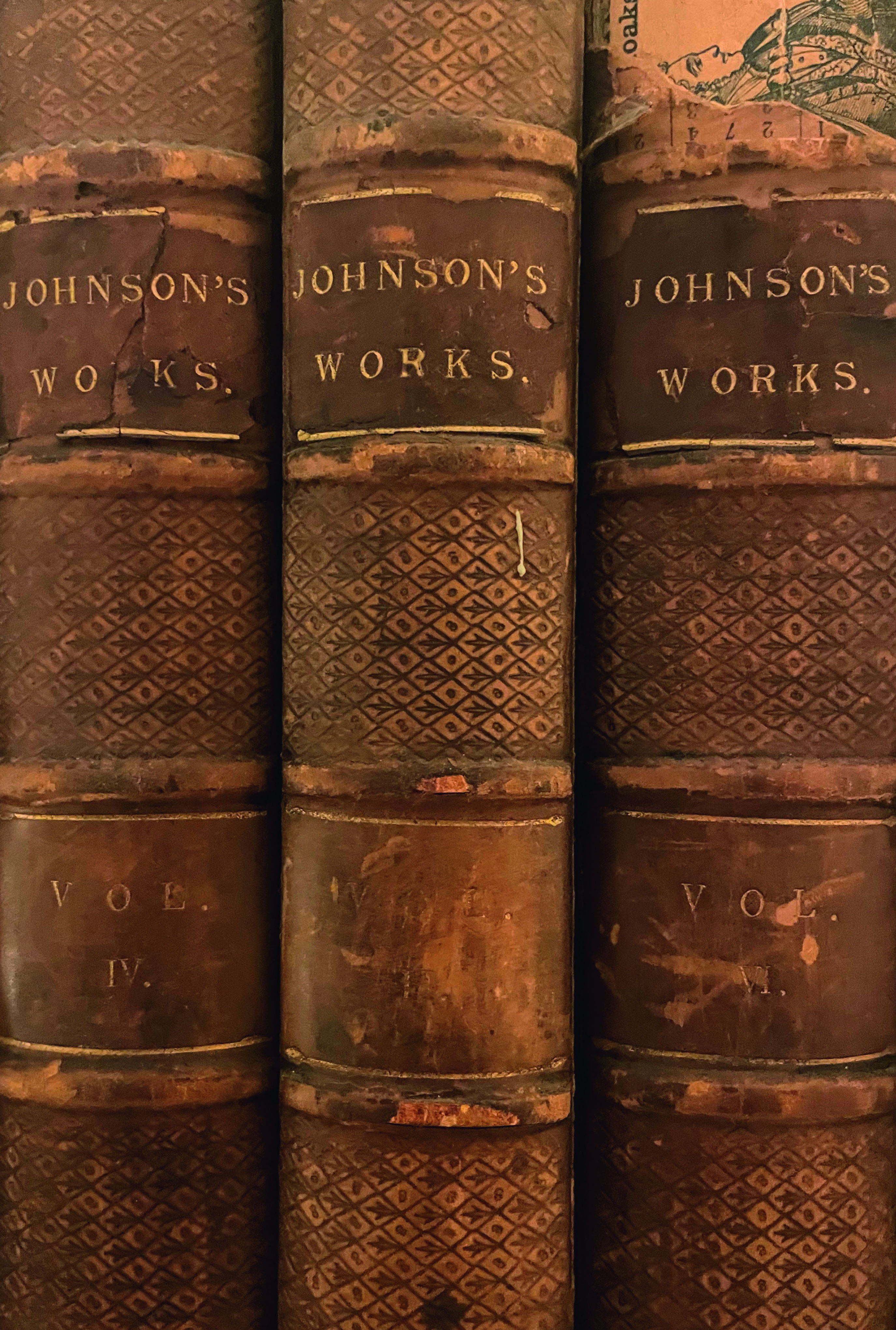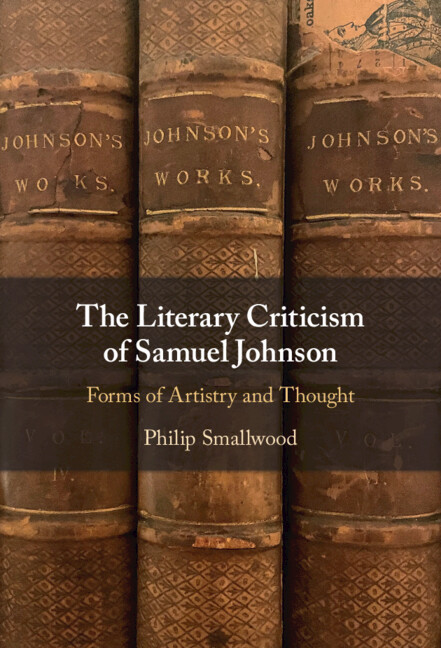
In the summer of 1968 at the age of eighteen, I received my undergraduate first year reading list from my tutor at Lincoln College. Johnson’s Lives of the Poets, the little two-volume hardback World’s Classics edition now out of print, instantly drew my eye. My Cheshire town had no bookshop, but a branch of W.H. Smith, the bookseller and stationer, was a five-mile bus ride away, so I made the trip and placed my order for Johnson’s volumes. I did not know at the time they would help shape a large part of my life as an adult. Once in my hands, I opened volume 1 at page 1 of the first of the Lives. This was the “Life of Cowley,” a favourite poet, I now know, of Milton, Dryden and Pope. I saw fairly instantly that the author of the “Life,” an eighteenth-century biographer and critic I had never encountered before, and whose interest in Cowley I had at that point no reason on earth to share, seemed to be speaking with a clarity and directness of English expression that I had not experienced before. And also, somehow, mysteriously, this writer seemed to know about me, one of the most recent of his common readers. The effect of opening my new volume was that the gap between 1968 and the first publication of Johnson’s fifty-two Lives in 1781 seemed to contract or disappear. My meeting with Johnson, at what I now see was a formative moment, I experienced as seriously personal—a kind of sign if you like. I knew I had to know more. Johnson, and Johnson’s criticism, had to be, or had already become, somehow my business.
Many, many years later, after a Ph.D. on Johnson, a teaching career in higher education, a period of seven years as the Head of an English department, and as the author of books, essays and editions on Johnson, Pope, and others, I knew there was more to be said about the meaning and idea of literary criticism, and I wanted especially to emphasise how criticism could be an art in its own right and at its best, indeed, a kind of poetry. The Literary Criticism of Samuel Johnson is the realisation of this ambition. Given the hotly contested exchanges and cultural warfare encircling the term “criticism” over the extent of my academic career, and its legacy for the present, the occasion for a new book on Johnson’s criticism seemed to me to be timely. Alongside the so-called Theory “revolution” I had heard much talk in my time about the critical theories of Johnson, summary accounts of his ideas, simplifications of his role as a “neoclassical” eminence whose influence on literary life came to a stop with the triumph of Romanticism. My project was also mindful of Johnson’s criteria. On the one hand there was the forgiving flexibility. On the other an uncompromising firmness. Everywhere an intelligence about life, a commitment to Truth at the level of religious honesty, and sensitivity to the trajectories of individual poetical lives where not all demonstrations of human wishes are vain. The human dimension would clearly have to be my theme. Hence “criteria of the heart,” a formula I coined for the occasion and a constant refrain in my book. Alongside the fabled rigour of his judgments, the intellectual and moral depth of his thought, in The Literary Criticism of Samuel Johnson I illustrate the often highly personal emotional investments of Johnson as being at the heart of the matter. Resting on a necessarily unresolved contradiction, Johnson’s “criteria of the heart” hold together the different sides of our natures. I learned from Alexander Pope that both are necessary, indeed are required to be in delicate balance, if critical writing of any age is not to lapse into the conventionalities of prejudice or the eccentricities of fashionable abandon.
The Literary Criticism of Samuel Johnson came together slowly. I first tested out parts of the study as essays and articles in academic journals or essay collections. But the book is a connected intellectual project. I have re-thought, distilled and synthesised in the process of writing and come to new conclusions. I have integrated as chapters discussions originally prepared as papers for oral delivery. On one occasion I had the honour of speaking at Dr. Johnson’s House in Gough Square where he and his team of six amanuenses had researched and assembled his Dictionary of the English Language; on another I gave a lecture on “Johnson’s Compassion” following my laying of a commemorative wreath on Johnson’s tomb in “Poet’s Corner” within Westminster Abbey. The latter location seemed to me a perfect final destination for a writer who was both a poet and a critic; but a critic brought to life in poetical prose re-animated movingly, as my first chapter shows, by modern metrical adaptation in the hands a distinguished American poet of our own time. It was to pull the book together that I brought Samuel Johnson to the Travelodge. To be more specific, to the motel at the Pear Tree Roundabout on the A34 Oxford ring-road with the Bodleian copyright Library a short Park and Ride away. It was here then that I concluded The Literary Criticism of Samuel Johnson. An odd place, perhaps, but a good place, to find a writer’s retreat.
Readers will notice that the cover of the book is an image of books by Johnson, and that this is taken from volumes of an early nineteenth-century edition of his Works. You will see that the spines of these volumes are well scuffed and that an old and perhaps not perfect repair is now needing further attention. This symbolises, it seems to me, how much a part of life, and how well-used, Johnson can become. I still have my two World’s Classics pocket-size volumes of the Lives of the Poets, rather battered, shabby and completely lacking their spines, but highly portable, much annotated, and often consulted. The Lives, Johnson’s last major critical work, is the subject of my concluding chapter. The survival of these little volumes more or less intact makes me feel a circle has been closed.

Latest Comments
Have your say!